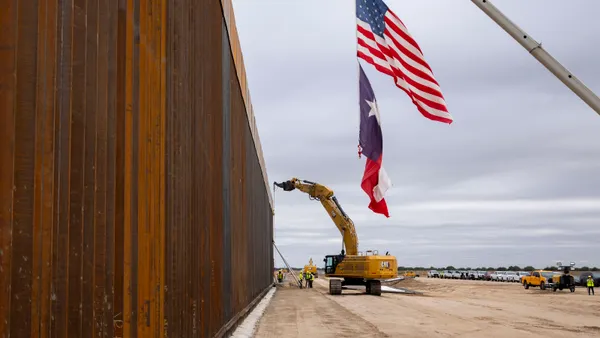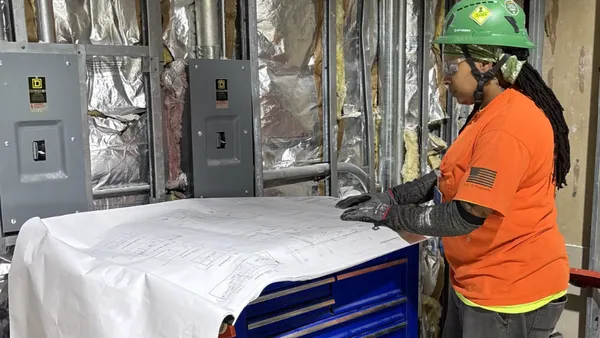Dive Brief:
- Massachusetts is betting big that diversity in its construction workforce is a positive for the state, and it's paying off for the increasing number of women taking part in building the $2.5 billion Encore Boston Harbor Casino in Everett, Massachusetts, according to CNBC.
- There 328 women currently doing construction work at the casino, formerly branded as a Wynn property, with some women, like those in journeyman pipefitter positions, earning $42 per hour. The Encore project set diversity goals of 6.9% for women, 3% for veterans and 15.3% for minorities. For the design phase of the project, Encore's goals are 7.9% minority business enterprise (MBE), 10% women business enterprise (WBE) and 1% veteran business enterprise (VBE). Its construction contractor goals are 5% MBE, 5.4% WBE and 1% VBE. As of last August, the project had exceeded its 6.9% goal for women in the workforce by 0.3%.
- The Northeast Center for Tradeswomen's Equity is leading a statewide initiative to see 20% of the building trades comprising women by the year 2020, but the Massachusetts Gaming Commission upped the ante by expanding its rules to require diversity in casino construction. As a condition of being granted a casino license, developers must set diversity goals that target the unemployed and underemployed, and must also set contracting goals that include minority-, women- and veteran-owned businesses. Licensees must issue regular reports to the commission about their compliance with these goals.
Dive Insight:
The drive to bring more women, minorities and other diverse groups into the building trades has gotten a boost from the persistent, industry-wide shortage of skilled tradespeople. The construction boom has contractor backlogs bursting at the seams, but firms are struggling to adequately staff openings, whether through their own workforce or through subcontractors.
This spring, using data from industry compensation firm PAS, Engineering News-Record reported that wages for construction professionals, also in short supply, had increased by 4% from 2013 through 2017. This is an indication that companies are more willing to accept narrower profit margins so that they can make themselves a more attractive choice for potential candidates.
But diversity plays a role here as well. As companies in other industries become more diverse, they will likely pursue relationships with contractors who reflect their own values of inclusion. In fact, according to the Associated Builders and Contractors' Employer Guide for Diversity and Inclusion, companies can only become "true industry leaders" and be fully competitive with the contributions of a diverse workforce that encourages "creativity, innovation and product development and delivery."












